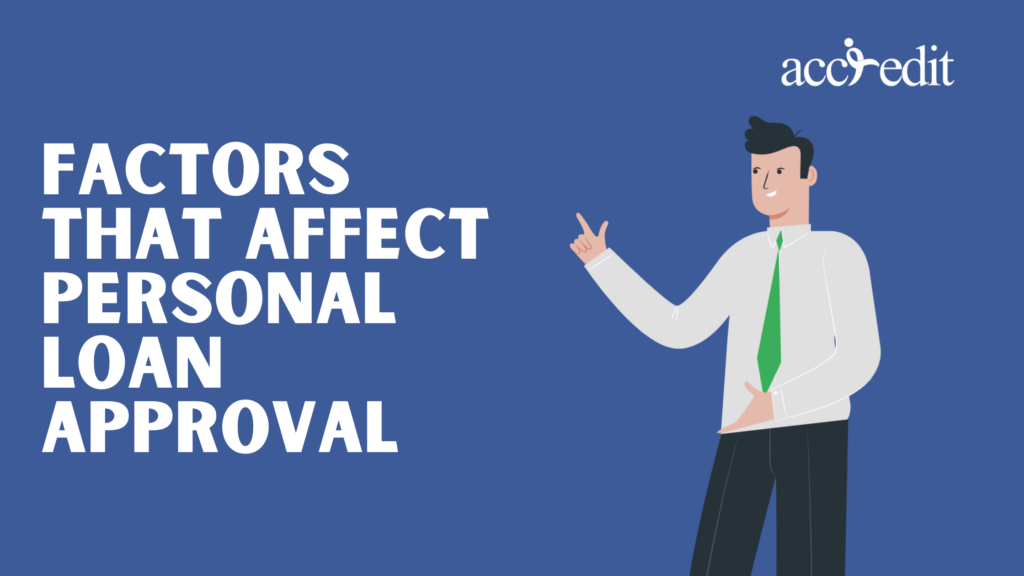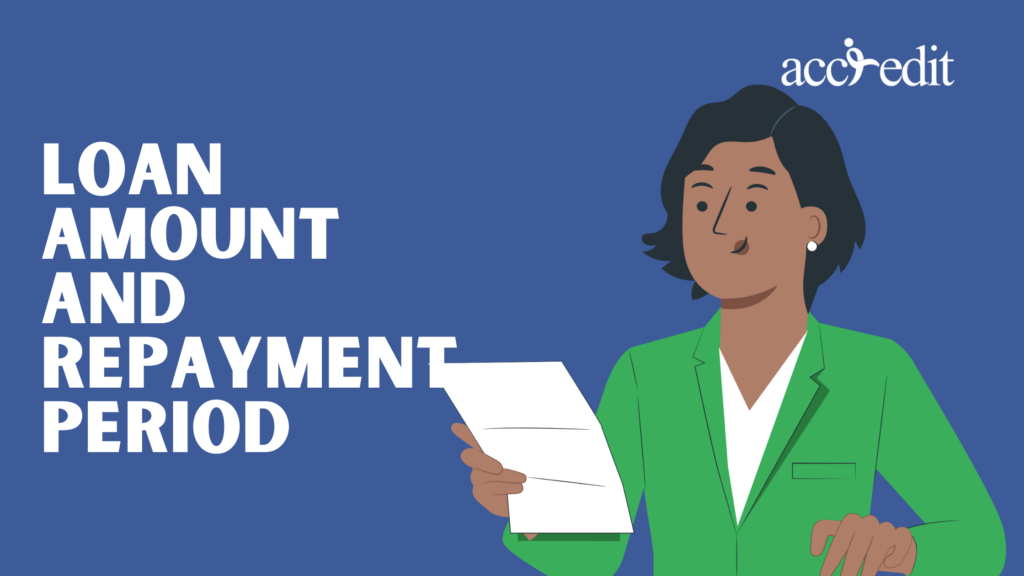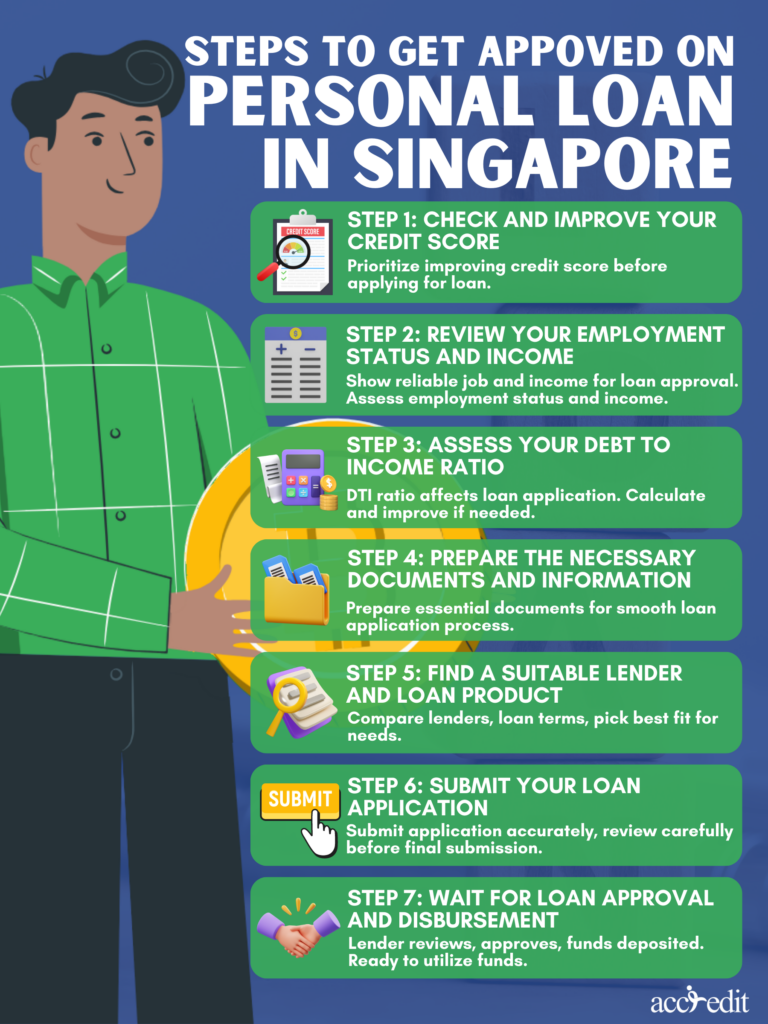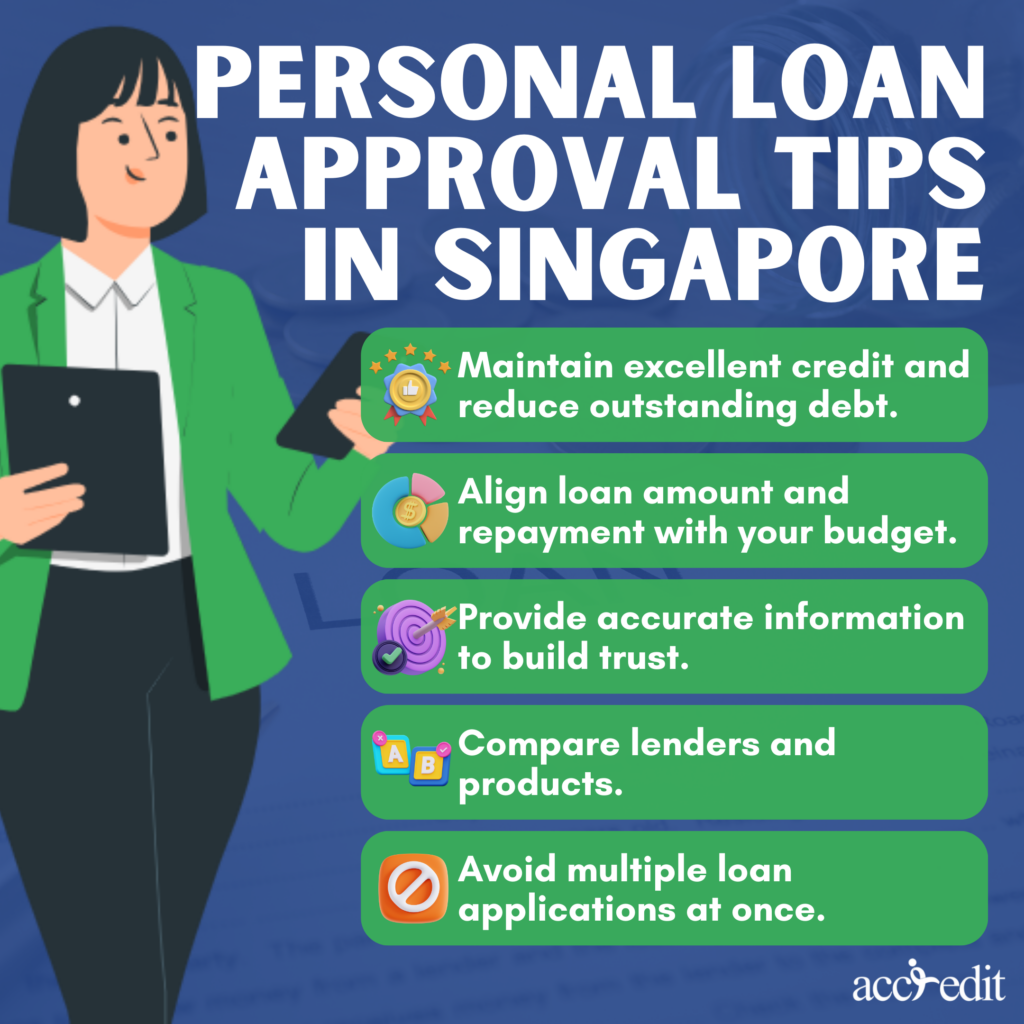
No doubt, personal loans in Singapore are a hit among people needing cash for diverse reasons such as consolidating debts, financing home renovations, or covering unplanned costs. Yet, scoring a nod for a personal loan can be tough, more so if you have a weak credit standing or a modest income.
This article delves into the forces behind loan approvals and offers tips to improve your odds of bagging a personal loan in Singapore.
Factors that Affect Personal Loan Approval

To ensure your application has the best chance of approval, it’s important to know what lenders are looking for. Let’s break it down and examine the vital elements that play a significant role in securing personal loan approval in Singapore.
Credit Score

Want to increase your chances of securing that personal loan? Your credit score is a top priority for lenders, as it showcases your creditworthiness derived from your credit history, payment history, credit utilization, credit account types, and credit history length.
In simple terms, a higher credit score means you’ll likely have more success obtaining a personal loan with desirable terms and interest rates. Struggling with a low credit score? Focus on boosting your score before sending in that personal loan application.
Employment Status

Your employment status and income level hold tremendous sway when it comes to securing personal loans. Lenders prefer applicants with a solid job and reliable income, as it signals financial capability to pay back the loan.
However, if you’re unemployed or your earnings fluctuate, you may encounter obstacles in obtaining approval for a personal loan or need to furnish supplementary documentation showcasing your ability to pay it off.
Debt-to-Income Ratio
The debt-to-income ratio (DTI) is a crucial metric that lenders use to gauge your capability of loan repayment. It’s simply the percentage of your monthly debt payments against your total monthly income. A high DTI ratio indicates a possible challenge in making loan payments.
Aim for a DTI ratio below 40%, though different lenders may have varying standards. If your DTI ratio exceeds this threshold, it’s wise to slash your debt or boost your income before submitting that personal loan application.
Loan Amount and Repayment Period

Choosing the right loan amount and repayment period can spell the difference between approval and rejection of your personal loan application. Every lender has a range of allowable loan amounts, and longer repayment periods often mean steeper interest rates. Thus, it’s crucial to select the loan amount and repayment period that jive with your earning and spending capacity.
Steps to Get Approved for a Personal Loan in Singapore

Knowing the factors that impact your personal loan approval is only half the battle. The real question is, what can you do to tip the scales in your favor? Luckily, we’ve got you covered.
Step 1: Check and Improve Your Credit Score
Before you dive headfirst into loan applications, prioritize improving your credit score and report. Even if it’s not where you want it to be, don’t lose hope. Start by lowering your credit utilization, paying bills on time, and correcting any errors. Set your sights on achieving a score between 1911 to 2000 to boost your chances of loan approval in Singapore.
Step 2: Review Your Employment Status and Income
To secure a personal loan, you need to show lenders that you have a reliable job and income flow. Therefore, it’s critical to assess your employment status and income beforehand. If you’re a freelancer, have fluctuating income, or are currently out of work, expect to furnish additional evidence, like tax returns or bank statements, that prove your capability to pay off the loan.
Step 3: Assess Your Debt-to-Income Ratio
Your debt-to-income (DTI) ratio can either make or break your personal loan application. Calculate your monthly debt payments and divide them by your gross monthly income to determine your DTI ratio. If it doesn’t meet your lender’s standards, you’ll need the plan to increase your income or decrease your debt before proceeding with your personal loan application. Remember, a low DTI ratio significantly increases your chances of approval.
Step 4: Prepare the Necessary Documents and Information
To ensure a seamless process, you must have all the vital documents and information ready to go. Be sure to gather necessary identification papers, income statements, bank statements, and employment details. Once you have everything in order, you can submit your application with confidence, knowing you’re well-prepared to secure that personal loan.
Step 5: Find a Suitable Lender and Loan Product
It’s crucial to explore various lenders and loan products to identify the best fit for your unique financial needs. Start by examining the loan amount, interest rates, fees, and repayment duration. From there, pick a lender and loan product that offers the most favorable terms and conditions.
Step 6: Submit Your Loan Application
You’ve found the ideal lender and loan option, and now it’s time to seal the deal by submitting your application. But remember, haste makes waste. Don’t risk derailing your efforts with careless mistakes or incomplete information.
Guarantee a smooth and successful submission by diligently ensuring that every detail is accurate and complete. Don’t forget to review your application one last time before clicking ‘submit.’
Step 7: Wait for Loan Approval and Disbursement
Your lender will scrutinize your request, cross-checking their criteria against your financial details. This step takes time, but don’t fret. Once approved, the cash flows into your account, and you’re ready to put it to work.
Tips for Getting Approved for a Personal Loan in Singapore
Follow these practical pointers to up your odds of getting approved for that personal loan:

Accredit Personal Loans

Singaporean citizens and foreigners alike can now rest easy with Accredit’s short-term personal loans. Eligibility is simple: the legal age of 21 and up, and an annual income of S$20,000 or less.
Our streamlined personal loan process offers swift approvals and fair interest rates, ensuring a hassle-free experience for all. Better still, even with a bad credit score and low income, your odds of approval are still sky-high with Accredit.
| Borrower’s annual income | Singapore Citizens and Permanent Residents | Foreigners residing in Singapore |
| Less than S$10,000 | S$3,000 | S$500 |
| Between S$10,000 to S$20,000 | S$3,000 | S$3,000 |
| Greater than S$20,000 | 6 times the monthly income | 6 times the monthly income |
Thoughts
It’s tough to secure a personal loan in Singapore, but don’t throw in the towel just yet. Take heed of these tips to increase your chances of success. Keep your credit score clean, consolidate your debt, pick the right loan amount and repayment period, and provide truthful information. Don’t forget to do your homework on different lenders and loan options, too.

